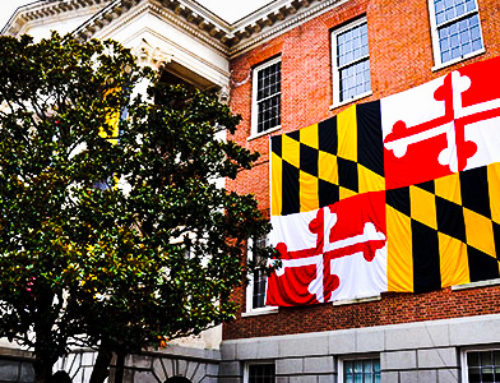View by Topic
Recent Articles
-
EPA Designates PFOA and PFOS as Hazardous Substances under Superfund LawSaturday, April 20th, 2024
-
Federal Government Finalizes New Efficiency Standards for LightbulbsSaturday, April 13th, 2024
-
2024 IECC is Final After Addressing Preemption IssuesSaturday, April 6th, 2024
-
Settlement Portends Broad Failure in Attempts to Ban Natural GasSaturday, March 30th, 2024
-
SEC Climate Disclosure Rule Stay and Venue Now in the 8th CircuitSaturday, March 23rd, 2024
View by Month/Year
“Green Building Law Update” Headlines
Recent Articles & News from
Stuart Kaplow’s blog
at GreenBuildingLawUpdate.com
- EPA Takes Action: PFOA and PFOS Now Hazardous Substances Under Superfund Law April 21, 2024
- Shedding Light on the Future: The Evolution of Lightbulbs in the Wake of New Energy Efficiency Standards April 14, 2024
- 2024 International Energy Conservation Code is Final After Addressing Preemption April 7, 2024
- Settlement Portends Broad Failure in Attempts to Ban Natural Gas March 31, 2024
Subscribe to the Green Building Law Update!
Stuart Kaplow brings his expertise and extensive experience to the table with his unique digital publication, "Green Building Law Update". Subscribers receive regular updates to keep them informed about important issues surrounding Environmental Law, Green Building & Real Estate Law, as well as the emerging demand for Environmental Social Governance (ESG).
Get fresh content through the lense of Stuart Kaplow's cutting-edge expertise, innovative commentary and insider perspective. Don't miss another issue! Subscribe below.

GRESB is Huge with $2.3 Trillion in Real Estate so Follow the Money
This article first appeared on my Green Building Law Update blog. The blog is intended for the entire environmental industrial complex, .. not just lawyers.
Please check out the blog and sign up for a weekly notice of new blog posts via email, at Green Building Law Update blog.
Representing a huge share of the market capitalization of real estate across the globe, this year, 707 real estate companies and funds, with over 61,000 properties, having an aggregate value of $2.3 Trillion reported their environmental, social and governance information to Global Real Estate Sustainability Benchmark (GRESB).
To appreciate the order of magnitude of those numbers, 15 of the top 20 REITs in the U.S. participated in the GRESB 2015 survey, and 41 U.S. REITs in total participated.
And participation the 5 year old GRESB is growing. The value of the property companies and funds reporting to GRESB was $1.6 Trillion in 2013, $2.1 Trillion in 2014 and $2.3 Trillion this year. The total number of participating property companies and funds increased to 707 this year, a net increase of 11% over 2014.
A relative newcomer, the GRESB real estate assessment is becoming recognized as the global standard for portfolio level sustainability reporting in the real estate sector. While many track sustainability at the building by building asset level, GRESB is a portfolio of buildings assessment. Simply put, GRESB captures more than 50 data points of environmental and social performance business practices for each real estate company or fund, providing investors with a tool to enable evaluation and industry benchmarking of the sustainability performance of a real estate portfolio.
As Dan Winters, Head of North America for GRESB, describes, “Companies who track the energy, water, and waste data within their asset holdings, who have engaged with rating systems like LEED over the years, and who exhibit strong internal governance practices tend to do very well on GRESB, and more easily differentiate from their peers.”
And it is even bigger than that, as key findings from a new study by the University of Cambridge include “a higher sustainability ranking of REITs in the annual GRESB Survey correlates to superior financial performance.”
More than 50 institutional investors report they currently use GRESB data in their investment decision and engagement process. Banks are beginning to use GRESB data in real estate lending. It is clear that the finance industry is embracing green building.
The outcomes of the GRESB Survey are reflected in a GRESB Score, as well as sub-scores for Management & Policy (30% weight) and Implementation & Measurement (70% weight). In 2015, the performance of companies and funds reporting to GRESB increased quite significantly, with the average GRESB Score now at 56, as compared to 47 in 2014. The average Management & Policy Score increased from 54 to 63, and the average Implementation & Measurement Score increased from 43 to 52.
North American entities represent 42% of GRESB global participation by gross asset value and 34% by floor area. GRESB participants are an impressive list across 6 continents.
GRESB B.V. is a private limited company incorporated in the Netherlands. Today GRESB is a wholly owned subsidiary of Green Business Certification Inc., the District of Columbia nonprofit associated with the U.S. Green Building Council. GRESB is directed by input from its Advisory Board and its regional Benchmark Committees. GRESB was cofounded in 2009 by Nils Kok, a thought leader connecting real estate finance with environmental economics, and as its CEO based in Amsterdam remains actively involved in day to day affairs.
Based in Washington DC, Chris Pyke is the connection to GBCI and is responsible for developing GRESB’s overall business strategy, including the development of products and services. Also part of the GBCI contribution is Dan Winters, head of North America for GRESB and responsible for investor engagement and new product deployment across GRESB’s multiple platforms.
GRESB is continuing the grow including that it has announced a new Infrastructure Benchmark that offers investors an assessment tool to enable systematic evaluation and industry benchmarking of the sustainability performance of infrastructure.
This law firm is among the new cottage industry that have assisted real estate companies with their GRESB survey data.
Accepting that real estate portfolios are a source of challenges and solutions to the complex environmental, social and governance issues of the day, GRESB tracks the opportunities to create value in green building.









